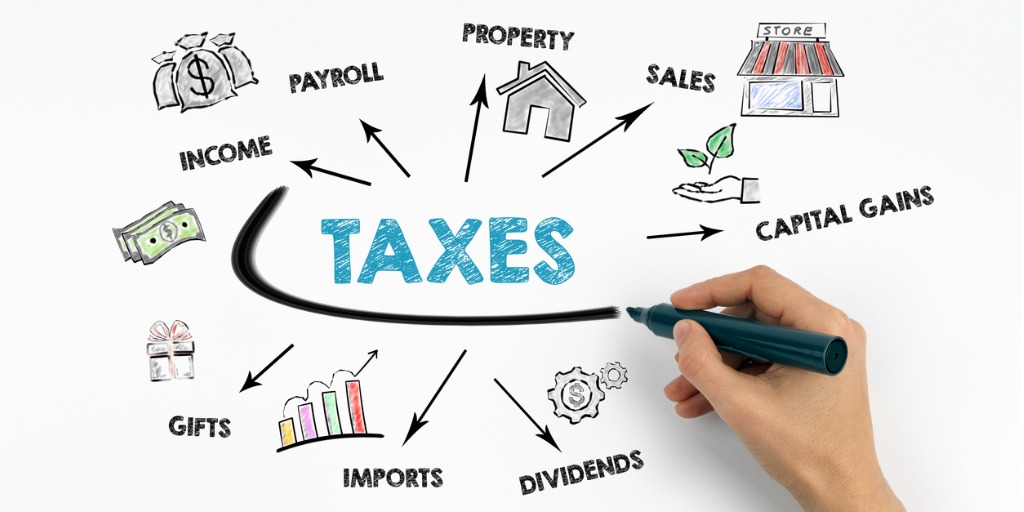Filing personal tax returns is an essential responsibility for taxpayers, yet it can often feel overwhelming due to the complexities involved. Ensuring accuracy and compliance is vital to avoid penalties and make the most of available deductions or credits. Whether you’re a first-time filer or someone with years of experience, understanding the key factors in tax preparation can simplify the process and maximize your returns. From organizing financial documents to being aware of deadlines and changes in tax laws, this guide offers practical insights to help you confidently navigate the filing process.
Understand Your Tax Filing Obligations
Before starting your tax return, it’s important to understand your filing requirements. Different individuals may have varying obligations based on their income, employment type, or residency status.

Determine Your Filing Status
Your filing status impacts your tax bracket and the deductions you’re eligible to claim. Common options include single, married filing jointly, married filing separately, head of household, or qualifying widow(er). Selecting the right status ensures you file correctly and optimize your tax benefits.
Check Your Income Threshold
Not everyone is required to file a tax return. If your income falls below the federal minimum threshold, you might not need to file. However, filing a return can be beneficial if you qualify for a refund or specific tax credits.
Consider State and Local Taxes
In addition to federal taxes, many states and municipalities impose income taxes. Be sure to review your local requirements to ensure compliance at all levels.
Organize and Gather Necessary Documents
Having the right documents on hand is essential for accurate and efficient tax preparation. Proper organization minimizes errors and ensures you claim all eligible deductions.
Collect Income Statements
Gather all forms reporting your income, such as W-2s for employees or 1099s for independent contractors. If you have multiple income sources, ensure you include all relevant documents to avoid discrepancies.
Compile Deduction and Credit Records
Track expenses and receipts that qualify for deductions or credits, such as medical bills, charitable donations, or education expenses. These can significantly reduce your taxable income.
Review Investment and Interest Forms
If you’ve earned interest or dividends or sold investments, ensure you have the corresponding forms, such as 1099-INT or 1099-DIV. These documents are critical for accurately reporting additional income.
Choose the Right Tax Preparation Method
The method you use to prepare your taxes can affect the accuracy and efficiency of the process. Evaluate your options based on the complexity of your financial situation.
DIY Tax Software
Tax software programs are user-friendly and often provide step-by-step guidance, making them ideal for individuals with straightforward tax situations. Many platforms offer free options for basic returns.
Hire a Professional Tax Preparer
If your tax situation involves business income, extensive deductions, or international considerations, hiring a tax professional can provide expert advice and minimize errors. Ensure the preparer is licensed and reputable.
Use Free Filing Resources
The IRS offers free filing options for individuals with lower incomes or simple returns. Explore these tools to save money while ensuring compliance.
Be Aware of Key Deadlines
Missing important deadlines can result in penalties or interest charges. Stay informed about relevant dates to avoid unnecessary costs.
File Before the Tax Deadline
The standard filing deadline for federal taxes is typically April 15. Mark this date on your calendar and aim to file early to avoid last-minute stress or potential errors.
Request an Extension if Necessary
If you’re unable to file by the deadline, consider requesting an extension. This gives you extra time to complete your return, but you’ll still need to pay any owed taxes by the original deadline.
Pay Estimated Taxes on Time
Self-employed individuals or those with significant non-wage income must make quarterly estimated tax payments. Ensure these are submitted on time to avoid penalties.
Take Advantage of Tax Deductions and Credits
Tax deductions and credits are valuable tools for reducing your tax liability. Understanding the difference and identifying which ones apply to you can increase your refund.
Understand Tax Deductions
Deductions lower your taxable income, which can reduce the amount of tax you owe. Common deductions include mortgage interest, student loan interest, and contributions to retirement accounts.
Explore Tax Credits
Credits directly reduce the amount of tax you owe, making them even more valuable than deductions. Popular credits include the Earned Income Tax Credit (EITC), Child Tax Credit, and education-related credits.
Don’t Overlook Itemized Deductions
While many taxpayers opt for the standard deduction, itemizing can be beneficial if your deductible expenses exceed the standard amount. Evaluate both options to determine which provides the greatest tax savings.
Avoid Common Filing Mistakes
Errors on your tax return can lead to delays, audits, or additional payments. Double-check your work to minimize mistakes and ensure accuracy.
Verify Personal Information
Incorrect Social Security numbers, misspelled names, or outdated addresses can cause issues with your return. Carefully review all personal details before submitting.
Report All Income
Failing to include all sources of income, such as freelance earnings or investment gains, can result in penalties. Cross-reference your forms to ensure nothing is overlooked.
Check Math Calculations
Even small calculation errors can lead to discrepancies. Use tax software or a calculator to verify your math and reduce the likelihood of mistakes.
Stay Updated on Tax Law Changes
Tax laws can change annually, impacting deductions, credits, or filing requirements. Staying informed ensures you remain compliant and take advantage of new opportunities.

Review IRS Announcements
The IRS regularly updates taxpayers about changes to the tax code. Check their website or subscribe to newsletters for the latest information.
Consult a Tax Professional
If you’re unsure how new laws affect your return, seek advice from a qualified tax preparer. They can provide insights tailored to your situation.
Adjust Withholdings if Necessary
Changes in tax laws or your financial situation may require adjustments to your withholdings. Review your W-4 form and update it as needed to avoid underpaying or overpaying taxes.
Plan Ahead for Future Tax Returns
Effective tax planning isn’t just about the current year – it’s also about preparing for future filings. Adopting good habits now can make the process easier and more efficient.
Maintain Organized Records
Keep digital or physical copies of all tax-related documents, including receipts, forms, and previous returns. Organized records simplify future filings and provide support in case of an audit.
Contribute to Tax-Advantaged Accounts
Maximize contributions to retirement accounts, Health Savings Accounts (HSAs), or other tax-advantaged plans. These can reduce your taxable income while helping you build financial security.
Review Your Financial Goals
Tax planning is an integral part of your overall financial strategy. Regularly evaluate your goals and adjust your approach to align with changes in your income or expenses.
Conclusion
Filing personal tax returns may seem daunting, but with the right preparation and knowledge, you can navigate the process with ease. By understanding your obligations, organizing documents, choosing the appropriate filing method, and taking advantage of available deductions and credits, you can maximize your refund and avoid costly mistakes. Staying informed about tax laws and planning ahead for future filings further ensures financial success. Start early, stay organized, and approach tax season with confidence to make the most of your tax return experience.

Leave a Reply